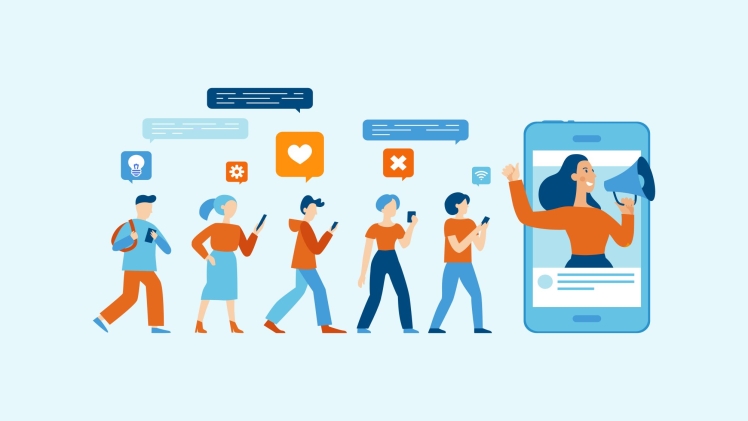If you are concerned about the effects of social media on your mental health, you’ve come to the right place. Here we’ll talk about Cyberbullying, the FOMO feeling, and the amount of time we spend on social media. These factors can all affect your overall well-being. If you want to download songs from Tamil movies, masstamilan is the right website for you.
Cyberbullying
If your child has been cyberbullied, it’s important to recognize the signs. Some kids may show signs of distress, including changes in mood, sleeping patterns, and eating habits. It’s important to talk to your child about the issue and encourage them to seek professional help if they feel overwhelmed. Also, students who have been cyberbullied may withdraw from group activities and friends. Justprintcard offers a wide range of interesting articles on topics such as technology, finance, sports, politics, and much more.
Various studies have examined the effect of cyberbullying on victims. They have shown that victims of cyberbullying typically tell someone, such as a parent or friend. Nevertheless, in some cases, the targets choose to remain silent, potentially out of embarrassment or fear. Malluweb is the biggest world news source. Youth who have been cyberbullied are also at increased risk of experiencing symptoms of depression, anxiety, and general mental health problems.
Feelings of FOMO
Researchers at the University of Glasgow have discovered how feelings of FOMO on social media can affect our mental health. Trendwait is the Worldwide Trending News Update platform.These feelings can lead to depression and an unhealthy self-image, and they can also affect the way we feel physically. FOMO is often driven by the need to belong or connect with others. But it can have a significant impact on our mental and physical health, and may be particularly dangerous for teenagers.
The good news is that there are ways to help reduce your FOMO. One method is to practice mindfulness. By practicing mindfulness, you will learn to be present in your life. This will help you avoid the constant feeling of being behind in a social media stream. It can also help you deal with feelings of depression and loneliness. Teachertn is one of the most searched platforms where you can get all the latest news on automotive to tech, business to sports, and many more news.
Lack of social connection
A lack of social connection can significantly affect the well-being of an individual. This may be the primary reason for the reported rise in loneliness and alienation. It has also been associated with increased vulnerability to depression, anxiety, suicidal behavior, and antisocial behaviors. Additionally, social isolation has been linked to increased mortality and disease.
A recent study from the Health Insurance Plan of Greater New York found that men with a strong social connection had only a quarter the risk of dying within three years of their heart attack. The findings are supported by research conducted at Duke University Medical Center and the Health Insurance Plan of Greater New York. Social connection also helps protect against serious medical conditions such as cancer, high blood pressure, and autoimmune diseases.
Research has also shown that loneliness is associated with lower cognitive functions and reduced executive function. It has even been linked to an increased risk of developing dementia. Although the causes of loneliness and dementia are not fully understood, there is ample evidence to suggest a link.
Time spent on social media
A new study has shown that time spent on social media can negatively impact a person’s mental health. The researchers used a multinomial logistic regression model to estimate the associations between social media use and both internalizing and externalizing problems. The results were presented as odds ratios, Pearson’s r, and adjusted values after accounting for multiple covariates. The researchers found that the increased use of social media was significantly associated with higher odds of internalizing or externalizing problems.
The study used a self-reported measure of time spent on social media on a typical day for wave two. Participants were able to categorize their usage as up to 30 minutes, up to 3 hours, three to six hours, and more than six hours. The primary outcome measure was the prevalence of externalizing and internalizing mental health problems as measured by the Global Appraisal of Individual Needs Short Screener (GAINSS). The study included a range of demographic and behavioral covariates, including age, gender, and body mass index.
Feelings of isolation
Social media is a powerful tool for connecting with people around the world, but it can also contribute to feelings of social isolation. The use of social media can replace meaningful conversations and in-person socialization. Some people experience social isolation as a result of unemployment, physical disability, or shame. These causes of social isolation can lead to feelings of depression, anxiety, or a combination of all three.
Conclusion
A recent study suggests that excessive use of social media may cause feelings of loneliness. High-usage of the internet has been linked with higher loneliness, with those who use social media to meet new people having a higher loneliness score than those who use it for homework. The researchers suggest that the age at which people start using social media platforms should be taken into account when examining loneliness. The research is limited because the scales used in the study were not validated in Lebanon.

